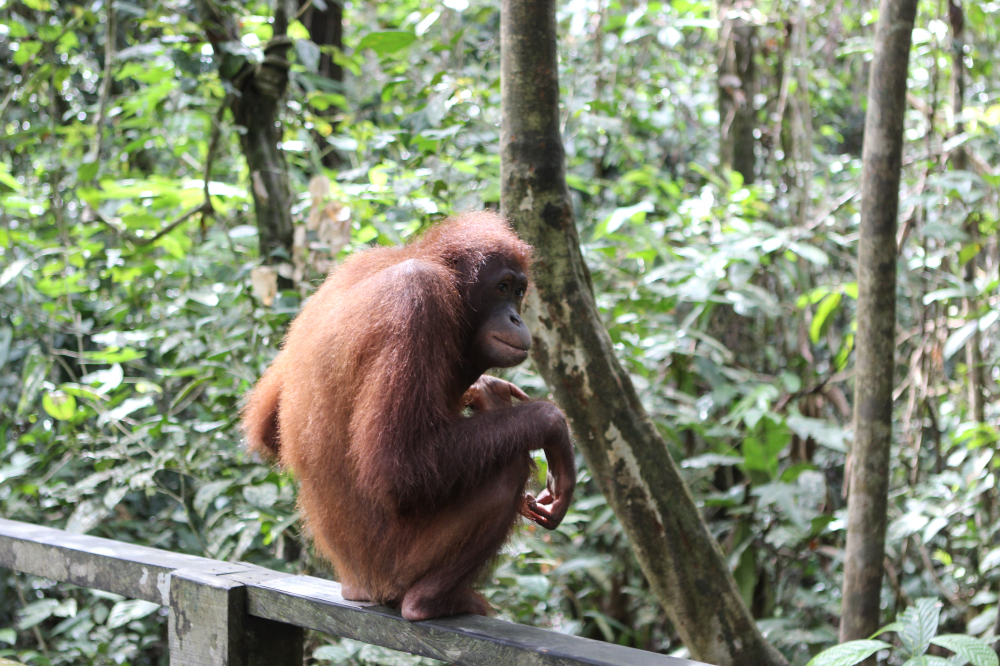Palm oil is made from the fruits of trees called African oil palms. As well as being naturally grown in tropical rainforest areas, they are also being planted and farmed to produce more palm oil.

Endangered animals lives are at risk because of the production of palm oil
It’s the most widely consumed vegetable oil in the world. Sadly, the mass use of palm oil means that rainforests and habitat of endangered species - such as orangutans, tigers and elephants suffer destruction. Although palm oil farming provides jobs to small farmers, environmentalists dispute the farming of it because of how badly it affects the planet.
Palm oil production was responsible for approximately 8% of the world's deforestation between 1990 and 2008. This is due to the burning of forests to clear areas where people can grow oil palms - even if it's illegal.
The use of palm oil is probably in more places than you think - from shampoos and soaps, to pizza and cookies. In fact, it is used in around half of all packaged products for sale on our supermarket shelves.
Chocolate, noodles, ice cream, lipstick, soap, margarine and detergent are just a few examples that show how palm oil is used across a wide range of different products.
Think your shampoo is safe because it doesn’t say it contains palm oil? Most likely, you’re wrong. Check your ingredients for things like glyceryl, palmitic acid, vegetable oil and vegetable fat, because these contain palm oil.
So how can you change your shopping behaviours to help protect these tropical rainforests and the endangered animals within them? Keep your eyes peeled for the RSPO label on packaging to ensure that the product is used with sustainable palm oil.
Tagged in environment

